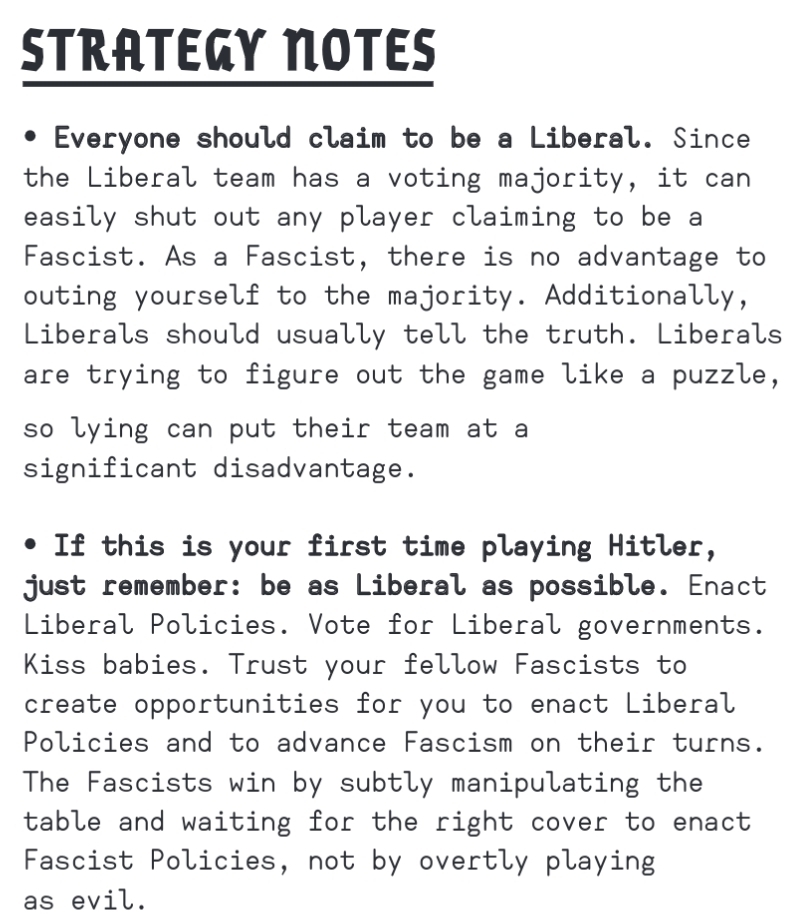I know The Landlord’s Game/Monopoly and Class Struggle, are there any others?
I looked it up on reddit, and there were some interesting games, but the usual cringe.
Spirit Island is a cooperative game of settler-destruction.
Each player plays a different spirit who lives on an island being invaded by European settlers and works together and with the indigenous people to kill all the settlers or at least enough that they fuck off forever.
I really enjoy Spirit Island (you can play it solo fairly well if you don’t mind playing two-handed). It’s one of the few board games that I feel the theme is something that actually aligns with my beliefs fairly well.
It’s…probably not something I would recommend to a newer board gamer though, because it is very heavy in execution.
I’ve spent a decent amount of time playing boardgames but I probably wouldn’t be called experienced as far as heavy games go. I could get used to it.
I had the opportunity to play it once at a board games night and had a lot of fun but it’s probably the most rules-heavy game I’ve ever played. Extremely cool game but unless you have a group of regular board game players who aren’t afraid of big long games, it may be a bit too much.
Catan is very fun but problematic. Ill have to check this one out.
Fair warning, it is a heavy co-op Ameritrash style game, which isn’t everyone’s cup of tea.
Wdym
Just in case there is any confusion about the other terms (the entire lexicon of board games took me a while to get the hang of).
Weight (light/heavy) - general complexity of game rules and mechanics. When somebody describes a game as heavy, it’s more complicated/difficult to learn. A light game is a lot faster to learn.
Co-op / semi co-op / competitive - Pretty straightforward, except semi co-op. Something like Nemesis, where players are working together but might have their own goals they are trying to fulfill that might be in opposition to the rest of their team.
Ameritrash / Eurogame - “Ameritrash” games are like Lagg said, more luck based games with direct competition (see Risk). Euro games tend to have indirect competition between players, you might not interact much at/all, until you tally your final scores to see who wins. Despite the name sounding somewhat negative, a lot of people (myself included) do like Ameritrash.
Despite the name sounding somewhat negative, a lot of people (myself included) do like Ameritrash.
100% I love this kinda game. Sentinels of the Multiverse, Seasons, Root, etc.
I see, the terms make sense. I like some luck myself, but not full luck.
So in Spirit Island there are decks of cards that you draw from, one that shows what areas the settlers are going to try to invade/build in and two that have new powers for your spirits as they grow more powerful. The interactions themselves are deterministic, but there’s definitely an element of chance (if you get a difficult to manage sequence of invasions, or keep getting new powers that don’t synergize with your spirit you could run into difficulties that aren’t due to poor play) but it’s not like “Well I used my ‘massive wildfire’ power to burn the settler city down, but only rolled a 2 so I didn’t work.”"
This sums up Ameritrash/Eurogame differences really well:
I found a YouTube link in your comment. Here are links to the same video on alternative frontends that protect your privacy:
American style board game, as opposed to European/German style.
I like secret hitler because it shows the ineptitude of liberal democracies to combat rising fascism
lol, all it takes is 2 liberals to be forced to approve a red law, and caos ensues. Fascists have it so easy in that game.
Anyone who writes this in a rulebook is either a little based or a Fascist.

Oh shit, horseshoe theory confirmed!
Looking at my board game shelf right now, a few that have some class implications:
- Twilight struggle - Play through the cold war. Incredibly fun but complicated.
- Carcassone - a battle between feudal lords trying to capture as much of the commons as possible.
- Jaipur - Ruthless trading about buying as cheaply as possible, and selling for as much as possible.
- Ticket to ride - Railroad monopoly titans fighting over limited terrain.
- Risk - Napoleonic warfare, but IMO the capturing of countries and continents gaining you more soldiers each round, implies industrialization and colonialism. Axis and allies kinda the same deal.
- Pass the pigs - Do I need to elaborate on this one.
Jaipur is also a city in Rajasthan, India.
(If you are a potential tourist do not consider visiting Rajasthan/Jaipur. It is 0% fun.)
Is it dangerous?
Nope. Just underwhelming.
I know The Landlord’s Game/Monopoly
The Landlord’s Game is Georgist, and kind of a bad board game.
Georgism sounds like Adam Smith’s ideal capitalism. I personally own the game, but somehow have yet to play.
If you ever get around to playing it, don’t let anyone introduce house rules that keep money in the game or otherwise slow it down (e.g. fees paid to the bank get picked up by the player that next lands on Free Parking, skipping the auction phase on unpurchased properties). Maybe consider setting a time limit, too.
I don’t know anyone who’s played it so I’m not too worried. It seems like those are just people trying to make it more monopoly-like. It’s pretty easy to just say “this isn’t monopoly.”
What about Root?
Some of the COIN games have cool settings, like Cuba Libre. I have to admit that they’re a bit too complex for me to justify buying - Root seems like the happy medium for this style of asymmetrical war games
I have a regular board game group who I play some pretty heavy games. We once played On a Distant Plain, the Afghanistan COIN game. By the end of it, the Coalition Forces player and the US player were legit at each other’s throats and tearing their hair out.
9.5/10 simulation of Afghanistan
2/10 if you actually want to have fun and retain friends
Damn I was actually about to suggest that one! Crazy class struggle metaphor by the gameplay
I’ve seen reviews and discussions of Hegemony: Lead your class to victory stating and implying that it gets a lot of things about various policies and their economical consequences surprisingly right.
I was curious about Hegemony. I know you can play as the worker class in it, though I am not sure if something like a class revolution is a mechanic or not.
I have found that a lot (most?) of the board game space is very traditionally liberal though, so I wouldn’t be surprised if the game reflected those kinds of economic ideas too.
That’s the curious thing - reviews stating that the game gets a lot of it right despite the widespread (and, quite possibly, still present in the game itself) liberalism. One player mentioned feeling defenseless as the workers when the capitalists sell everything abroad and gain so many influence dice as to make engaging in elections and policy-making against them pointless, then, following the workers’ attemps at striking, decide to buy abroad as well; his coplayer referred to a two-months-old argument among them about protectionist policies, then asked whether player 1 sees now, taking a simplified model that is the game as an example, that reliance on consumer imports is pretty harmful for the majority of the population in the long run.
Although it’s kind of designed to play it only once.
Red Outpost is a cool concept but not the best gameplay.
Not sure if I’d call it based as such but the cooperative aspect of Pandemic and the Legacy versions is really refreshing. Most games these days are competitive and based on some liberal economic aspect.
I just remembered, there’s a cointelpro related game mentioned on Programmed to Chill, but idk what its called.
Edit: no luck. my best bet would be asking him on twitter, but i dont have an account.
Also, does anyone know of genuinely good boardgames that involve some spycraft / bluffing? I tried codenames, but I’m not a big fan.
I quite enjoy secret hitler. It is quick and dynamic, like a snappier version of werewolf.
coup
I didn’t get a chance to play it, just watch, but Coup looked really fun and is basically a game about bluffing about which cards you may or may not have.
Bluffing: Battle for Rokugan. It’s a territory control and strategy game in the vein of Risk but actually playable and not luck based.
Also bluffing, Spicy. It’s a €10 card game that’s great to start a board gaming session or something fun to do with a group that aren’t board gamers.
Shadow Hunters is a secret roles type game with RPG elements to spice it up
The Resistance is a my preference for the secret role/social deduction style party game. One thing I really like is that it has no player elimination mechanics, you don’t have to worry about getting knocked out in round 1 and then just watching your friends play the remaining rounds.
Not necessarily spycraft, but Sheriff of Nottingham is a really fun bluffing game where you are trying to smuggle goods past the titular Sheriff.
I love sheriff of nottingham so much. Thx, I’ll check out Resistance.
I don’t like codenames either. There’s a counterintelligence game I’m trying to find, though.
yeah i’ve never been a fan of codenames either… im not sure why it’s so popular
If it wasn’t the wordcraft that turned you off Codenames then I think Decrypto is a much better execution. The opposing team is also trying to make guesses using your information, which makes it more of a spy game, and there is less RNG involved in being dealt good words.
Other than that I enjoy Coup and Citadels, basically any Mafia style game, as well as games where everyone is dealt a similar hand like Libertalia and Oriflame.
Paint Chip Poetry has players make poems which is nice. There’s a level of warmth to it that contrasts well with mathy games and competitive games. I think it has rules for winning and losing, but I’ve never used them.
Wingspan is nice, the cards are birds and the art is very good. You could get intense about Wingspan or play very casually so the flexibility there is good.
deleted by creator















